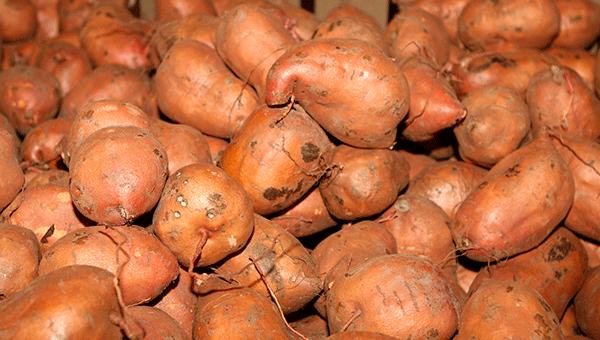Good chance Thanksgiving sweet potatoes grown here
Published 1:11 am Wednesday, November 25, 2015
As Thanksgiving approaches, whether you’re serving a delicious sweet potato pie or a simple baked sweet potato topped with butter, it was likely grown by an Alabama farmer.
From cornbread to casseroles, there’s a place for sweet potatoes on every Thanksgiving table.
Farmers like Joel Sirmon of Baldwin County and Casey Smith of Cullman County want to remind consumers there are no better sweet potatoes than those grown in Alabama.
“We were blessed with a good crop of sweet potatoes this year,” said Sirmon, who grew 700 acres of the tubers. “It was better than expected.”
Smith said his crop was turning out well, too.
“We’ve still got about 25 acres left to harvest,” he said. “The recent rain put us a little behind, but the weather is supposed to be good for the next few days, so we should be able to finish up by the end of Thanksgiving week.”
Planting and harvesting sweet potatoes is labor-intensive, and much of the work is done by hand. Alabama ranks sixth nationally in sweet potato production, bringing in more than $9 million to the state annually.
Planted in the spring, sweet potato harvest typically begins in early fall. The potatoes are turned up with a tractor and disc, and gathered by hand in 40-pound crates before being hauled from the fields by trucks. After curing in the Alabama heat and humidity for about two weeks, sweet potatoes make their way to grocery stores throughout the Southeast.
Sirmon and Smith said their biggest customer is Walmart, although both sell to other brokers and to local residents.
Sirmon said there are few things better than a baked sweet potato, while Smith said he prefers a good sweet potato pie over most other ways they’re prepared. While their taste buds differ, both men say they like growing a crop families enjoy at special gatherings and casual weeknight meals. The biggest demand for sweet potatoes is at Thanksgiving, followed by Christmas and Easter, Sirmon said.
“But I want people to enjoy them all year long,” he added.



